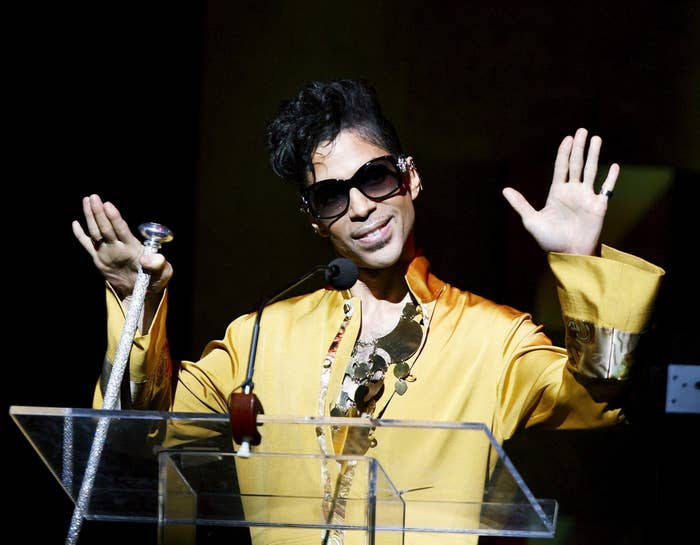
Prince, the legendary singer and songwriter who forever transformed popular music with classics like “Purple Rain,” died Thursday at age 57. He left behind more than two dozen studio albums and an indelible mark on American culture.
But he also left behind another legacy: a decades-long fight for artistic independence against powerful record labels.
Today, it’s common for high-profile artists to record and release their own music without the help of a large label. Jay Z’s subscription-based streaming service, Tidal, and Radiohead’s decision to release their album online as a pay-what-you-want model are just recent examples.
But for many decades — especially in the days before the rise of the internet — musicians could only hope to reach big audiences if they were willing to work with a large corporation. And that often meant making compromises that sacrificed artistic integrity in favor of the company’s bottom line.
Prince had a contentious relationship with his label — Warner Bros. — since the very beginning, but tensions reached a fever point in 1993. As Jason Draper explains in his seminal biography of the artist, there were many reasons for the fight, but Prince was particularly aggravated that the record label owned the copyright to the name his mother had given him at birth.
In protest, Prince had his name legally changed to an unpronounceable symbol composed of a juxtaposition of the alchemical signs for male and female. The press then began to refer to him as “The Artist Formerly Known as Prince.”
Prince’s contract with Warner Bros. required him to release a certain number of records with the label. In an attempt to get out of the contract faster, Prince began rapidly releasing albums that consisted mostly of unused material that he had already recorded. The label then tried to get him to slow down the release of new material, arguing that he was saturating the market.
This led to a protracted legal battle and more acts of protest on the part of the artist, who routinely appeared onstage with the word “SLAVE” written on his face and called his efforts to break free from Warner Bros. an attempt at “emancipation.”
The war between star and label had disastrous consequences for Prince’s record sales. The Gold Experience, an album released in 1995 after two years of legal skirmishes, sold less than 500,000 copies. By contrast, the 1984 classic Purple Rain sold more than 13 million.
Prince changed his name back to Prince in 2000, when his contract with Warner Bros. finally expired. Speaking at the press conference where he announced the name change, the artist gave one of the most eloquent explanations of his reasoning:
“The price of CDs has skyrocketed while the quality of music has plummeted,” Prince said. “And as long as middlemen control the means by which the consumer consumes, this will never change. The problem is not a complex one, and the solution is simple: Let the baker make the bread.”

